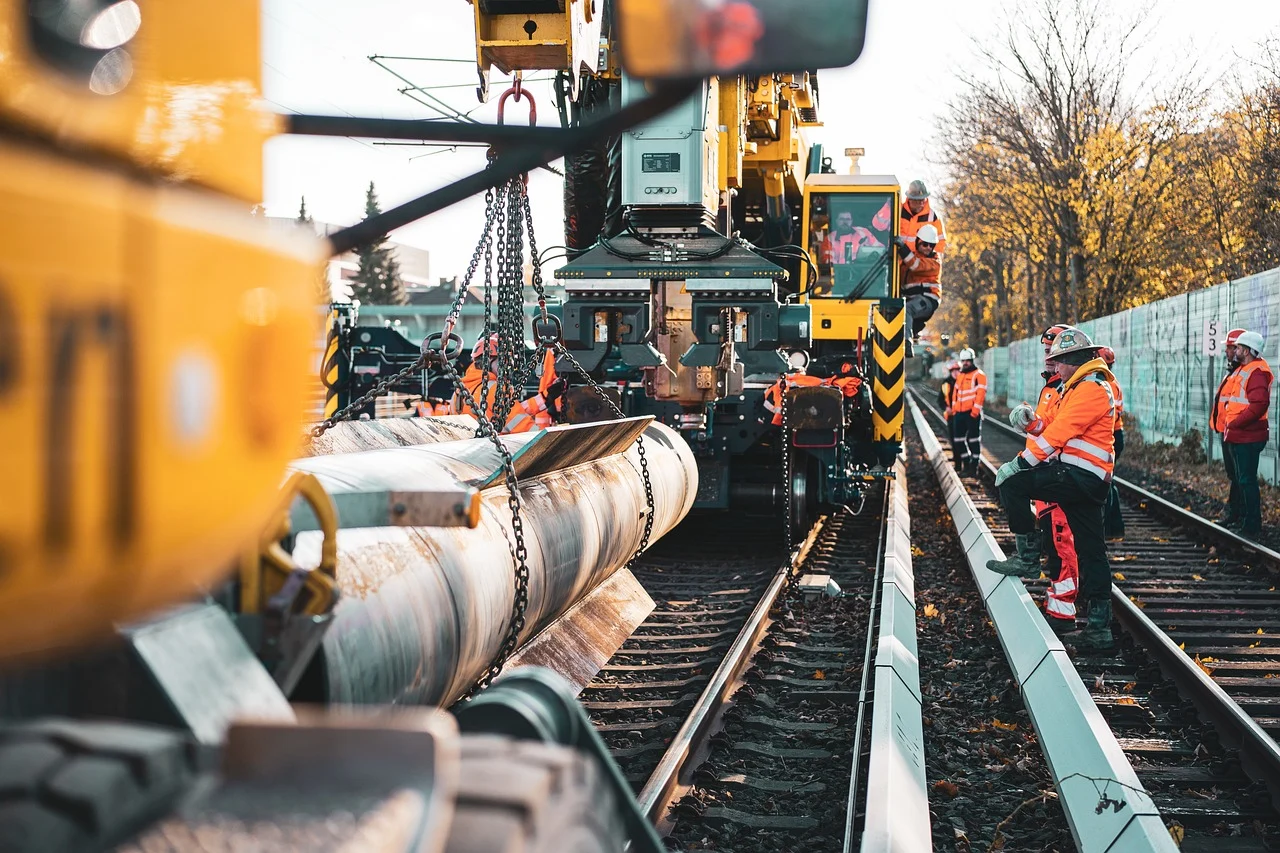Material handling is one of the most critical aspects of construction work, involving the efficient movement of materials like soil, gravel, sand, and debris across the job site. Wheel loaders for construction are essential for this purpose, providing a powerful yet flexible solution for moving materials quickly and efficiently. With their robust build, versatility, and adaptability to various attachments, wheel loaders simplify material handling on construction sites and improve productivity across all phases of a project. Here’s an in-depth look at how wheel loaders enhance material handling and why they’re a valuable asset for construction projects of all sizes.
1. High Capacity for Moving Large Volumes of Material
One of the primary advantages of using wheel loaders for construction is their ability to move large quantities of material efficiently. With their powerful engines and high load capacity, wheel loaders can transport heavy loads in a fraction of the time it would take using manual labor or smaller machines. The bucket at the front of the loader is designed to hold substantial volumes, allowing operators to move materials quickly across the job site.
Bucket Size and Load Capacity
Wheel loaders come with a range of bucket sizes and load capacities to accommodate different project needs. From small loaders suitable for light landscaping tasks to large loaders capable of handling heavy-duty construction work, the right wheel loader can streamline material handling, reducing the time and labor required to move materials. By choosing a loader with a bucket that matches the demands of the project, contractors can maximize efficiency and productivity.
2. Versatile Attachments for Multi-Functional Use
One of the standout features of wheel loaders is their versatility, thanks to the range of attachments available. With the ability to switch attachments, wheel loaders can perform various tasks beyond material handling, making them an invaluable tool on construction sites. Attachments such as forks, grapples, and snow blades allow wheel loaders to handle multiple types of materials and perform diverse functions.
Common Attachments for Wheel Loaders
- Fork Attachments: Transform the wheel loader into a forklift, allowing it to handle pallets, pipes, and other materials that need careful handling.
- Grapple Buckets: Useful for picking up irregular or loose materials like logs, rocks, and scrap metal.
- Snow Plows and Blades: Ideal for clearing snow or debris from the construction site, especially in areas with heavy winter conditions.
By utilizing these attachments, wheel loaders for construction become highly adaptable machines that can perform multiple roles on a job site, reducing the need for multiple pieces of specialized equipment.
3. Improved Maneuverability and Control
Construction sites often require machinery that can navigate tight spaces or rough terrain, and wheel loaders are designed for just that. Unlike some larger construction machines, wheel loaders offer excellent maneuverability, allowing operators to move materials precisely without causing damage to the surrounding area. This makes wheel loaders an excellent choice for projects in confined or urban spaces.
Four-Wheel Drive for Rough Terrain
Many wheel loaders are equipped with four-wheel drive, enhancing their ability to move across uneven ground, loose gravel, or muddy surfaces. This feature is particularly beneficial on construction sites with varying terrain, as it enables the loader to maintain traction and stability, even on challenging surfaces. Operators can confidently use wheel loaders to transport heavy loads across the job site, knowing the machine can handle rough conditions.
4. Enhanced Efficiency and Reduced Labor Costs
Wheel loaders can significantly reduce labor requirements on a construction site. Rather than relying on manual labor to move materials, contractors can use a wheel loader to accomplish the task quickly and efficiently. This not only reduces the physical strain on workers but also enables teams to complete projects faster, reducing overall labor costs and enhancing productivity.
Faster Project Timelines
The efficiency that wheel loaders for construction provide is especially valuable on large-scale projects with tight deadlines. By accelerating the pace of material handling, contractors can keep up with project schedules and meet milestones more effectively. This speed is critical for projects that involve a high volume of material movement, such as road construction, site preparation, and landscaping.
5. Operator-Friendly Design and Comfort
The design of modern wheel loaders prioritizes operator comfort and ease of use, which contributes to smoother operations on construction sites. Spacious, ergonomically designed cabs, intuitive controls, and adjustable seats allow operators to work comfortably, even during long shifts. Many models also feature advanced technology, such as LCD displays, joystick controls, and climate control systems, which further enhance the operator experience.
Benefits of Ergonomic Controls
Wheel loaders are built with user-friendly controls that simplify operation, making it easier for operators to perform tasks accurately and efficiently. Ergonomic controls reduce operator fatigue, which is essential for maintaining productivity and safety on-site. With features like hydraulic steering, responsive brakes, and easy-to-reach controls, operators can focus on precise material handling, even in challenging environments.
6. Enhanced Safety Features for Job Site Security
Safety is paramount on any construction site, and wheel loaders are equipped with numerous safety features to protect both operators and other workers. From backup alarms to rollover protection systems, these machines are designed with the job site’s safety in mind. Choosing a wheel loader that includes modern safety features can reduce the risk of accidents and create a safer work environment.
Key Safety Features
- Rollover Protection System (ROPS): Protects the operator in case of a rollover, which is especially important when working on uneven terrain.
- Backup Alarms: Alerts nearby workers when the machine is reversing, reducing the likelihood of accidents.
- Enhanced Visibility: Many wheel loaders have large windows and strategically positioned mirrors to improve visibility and minimize blind spots, allowing operators to see their surroundings more clearly.
By investing in wheel loaders for construction with robust safety features, contractors can ensure a secure work environment and reduce downtime associated with workplace incidents.
7. Fuel Efficiency and Environmental Benefits
Many modern wheel loaders are designed with fuel efficiency in mind, helping contractors reduce operational costs while minimizing environmental impact. Fuel-efficient models use advanced engines that meet emissions standards and reduce fuel consumption, making them a more sustainable option for construction projects.
Cost Savings and Environmental Compliance
Fuel efficiency not only lowers costs but also ensures that the equipment complies with local emissions regulations, which is especially important for projects in areas with strict environmental guidelines. Choosing a fuel-efficient wheel loader for construction helps contractors save on fuel expenses and reduces the project’s overall carbon footprint, aligning with more sustainable construction practices.
8. Easy Maintenance and Reliable Performance
Regular maintenance is essential for keeping construction equipment in top working condition, but it can also be costly and time-consuming. Fortunately, wheel loaders are known for their reliability and ease of maintenance, with many models featuring accessible service points and easy-to-change components. This reduces downtime and ensures that the machine remains operational throughout the project.
Service and Support from Rental Providers
When renting a wheel loader, most rental companies offer maintenance and support services, taking care of routine maintenance and repairs as needed. This minimizes downtime and allows contractors to focus on their projects without worrying about equipment upkeep. For contractors who need reliable machinery that won’t disrupt their workflow, renting wheel loaders from reputable providers is a practical solution.
9. Ideal Applications for Wheel Loaders in Construction
Wheel loaders are suitable for a variety of tasks on construction sites, including:
- Material Transport: Moving sand, gravel, and other materials across the site quickly and efficiently.
- Site Preparation: Clearing land and leveling surfaces before construction begins.
- Loading and Unloading: Transferring materials onto trucks or trailers for transport.
With their adaptability and ability to handle heavy loads, wheel loaders for construction are essential for tasks that require powerful material handling and efficient movement across the job site.
Final Thoughts
Wheel loaders have become indispensable tools for material handling on construction sites, offering the power, versatility, and efficiency needed to keep projects moving smoothly. From moving large volumes of material and adapting to various job site conditions to reducing labor costs and enhancing safety, wheel loaders for construction simplify material handling in a way that few other machines can match.
For contractors seeking reliable and versatile machinery, renting or investing in a wheel loader can make a significant difference in project efficiency. By understanding the key benefits and applications of wheel loaders, contractors can make informed decisions that support productivity, improve site safety, and help meet project timelines effectively.




